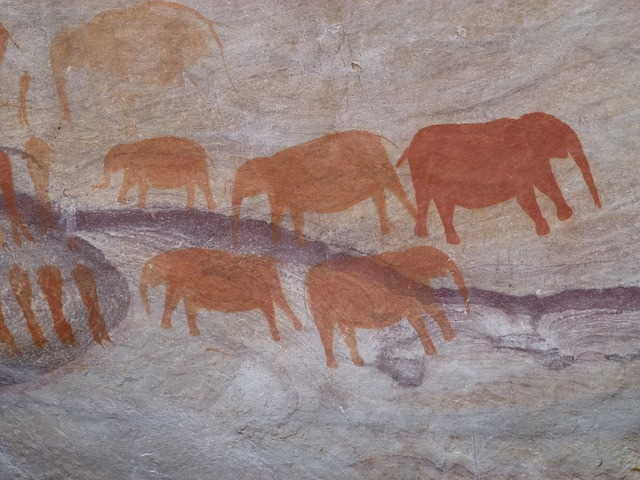There’s an African proverb that says: “Blessings of ancestors are greater than those of a living human being.” Our ancestors communicate with us in different ways, but their past messages still resonate today through the gift of rock art.
The Rock Art Research Institute (RARI) – a part of the University of the Witwatersrand – hosts a digital repository of all rock art images across the continent – the African Rock Art Digital Archive (www.sarada.co.za). Featuring over three decades’ worth of research and insight, the Institute has established itself as a premier organisation to discover more about our country and continent’s rich heritage.
“Not only is rock art visually stunning to look at, but it is also vital to understanding more about us as a society and our past,” says Dr Sam Challis, Head of RARI. “It’s akin to walking into a cathedral and having a religious experience at what you see around you. At RARI, it’s our passion to inform and show our continent’s heritage and culture to the world. To do so, however, we need partners such as Canon South Africa that are as passionate about the conservation and preservation of history as we are.”
Due to funding constraints, RARI’s digitisation laboratory experienced difficulties over the years, with its technology being heavily outdated and their operations short-staffed. Change was necessary for it to maintain its status and prestige as the archival specialist on the African continent. This required assistance from Canon on two fronts.
First, Canon analysed the digilab and identified immediate areas of improvement, both in terms of technology and solutions. This continues to be an ongoing process as both Canon and RARI work towards the best process to capture, store, and print these archives.
Second, the digilab needed additional resources to cope with the mounting requests, archival tasks, and everyday admin. At the same time, it was critical to build an inclusive environment for previously disadvantaged South Africans to have the opportunity to advance in the fields of research, heritage conservation and archaeology.
According to Canon South Africa HR Director, Christine Masinga, part of showcasing its commitment to the partnership and advancing the skills talented black graduates and future teachers, Canon sponsored the three Transformation posts for the period of a year, with an option to extend for a further 12-months. The sponsorship includes the salaries of two Archival interns and one Digital Archive Specialist/Manager. The Digital Archive Manager will mentor the archival interns to become fully-fledged, successful technicians.
“Canon’s corporate philosophy is built on the Japanese principle of ‘kyosei’,” says Canon South Africa Managing Director David Preston. “It means living and working together for the common good of society. Preservation is part of this, because our heritage is not just important for us today, but for future generations as well. Our continent has such rich and diverse stories, and they deserve to be told for centuries to come. The work that RARI is doing is paramount to ensuring this will continue to happen. And at Canon, we’re delighted to be a part of this incredible journey too.”
Dr Challis is equally excited about this new relationship with Canon, believing it can have a positive impact on South Africa as a whole. “This isn’t just a partnership that benefits RARI or Canon,” he says. “It empowers our youth with opportunities that might not have existed before, while creating greater sustainability and ensuring our heritage is preserved.”
While RARI is the undisputed authority on rock art, Canon has provided invaluable assistance as the imaging technology expert that believes in the power of stories. It’s a deep, meaningful partnership that will ensure the messages from Africa’s ancestors will never be forgotten, no matter how much time has passed.












